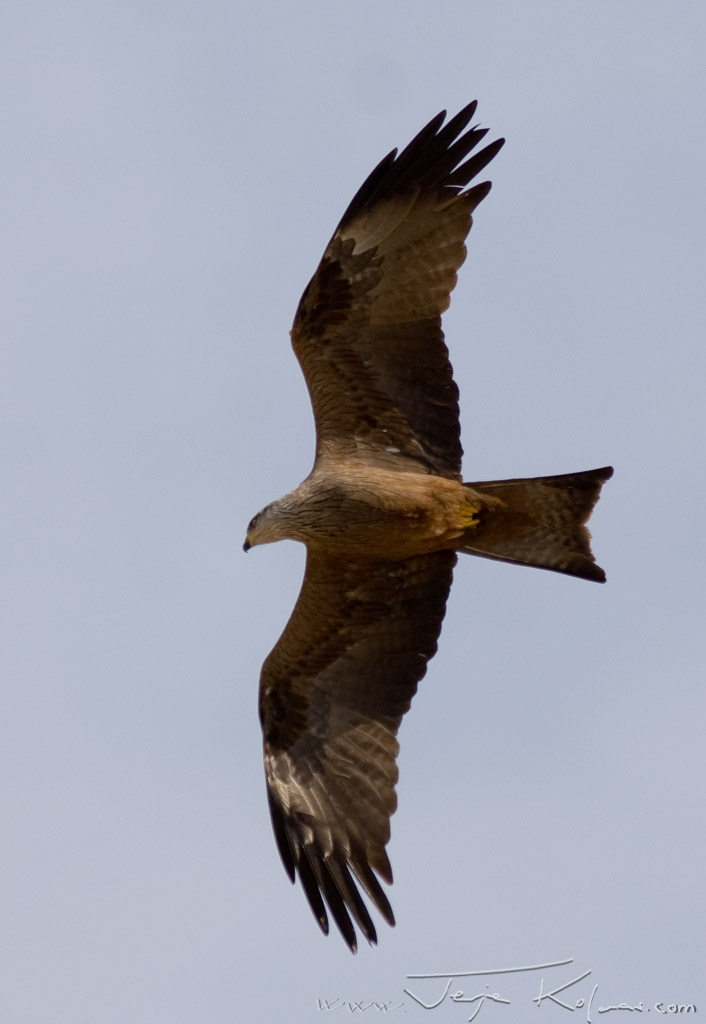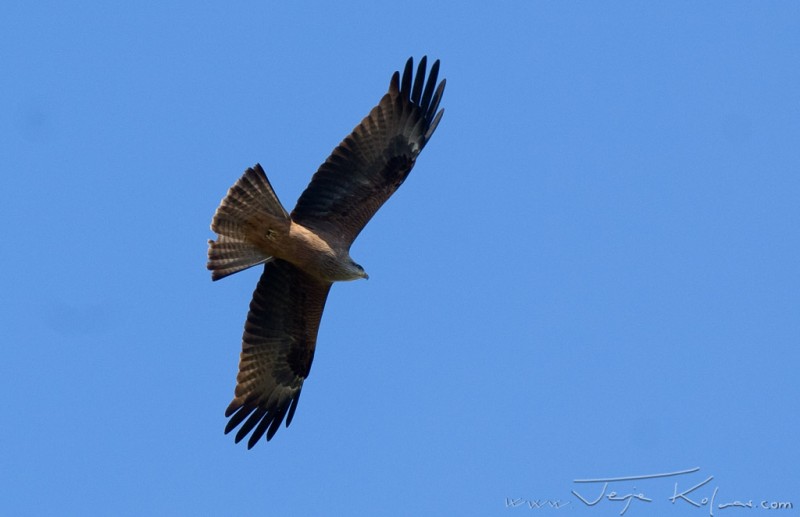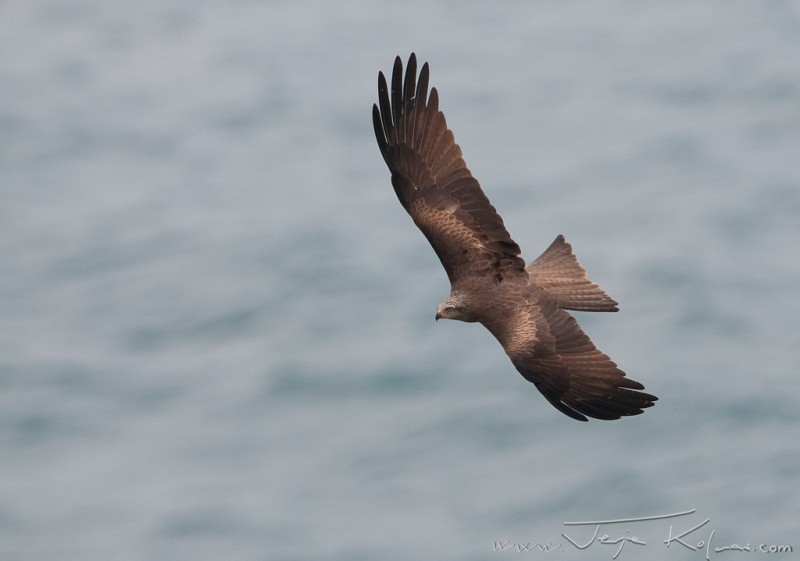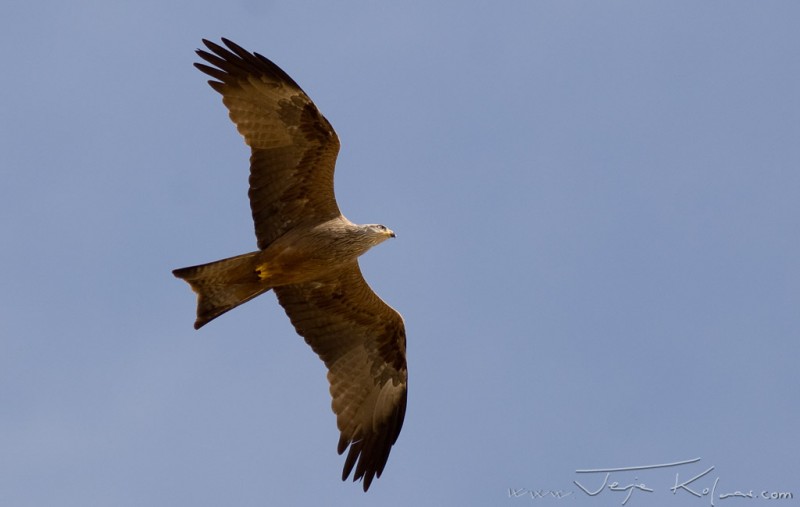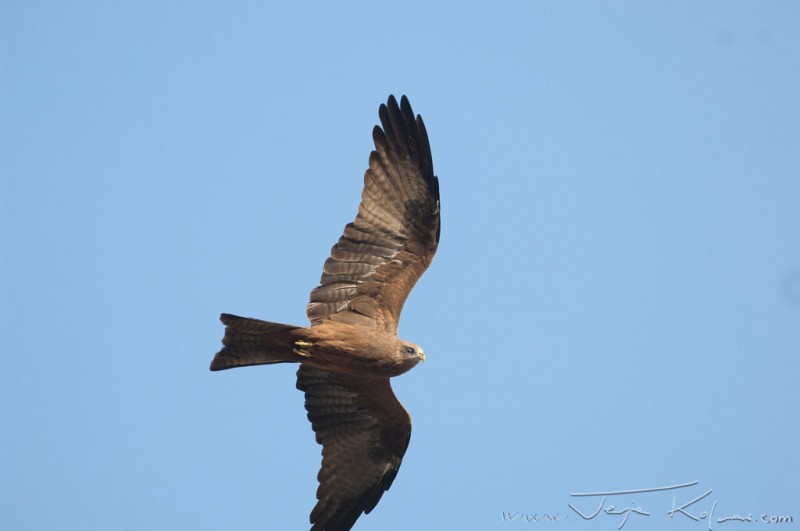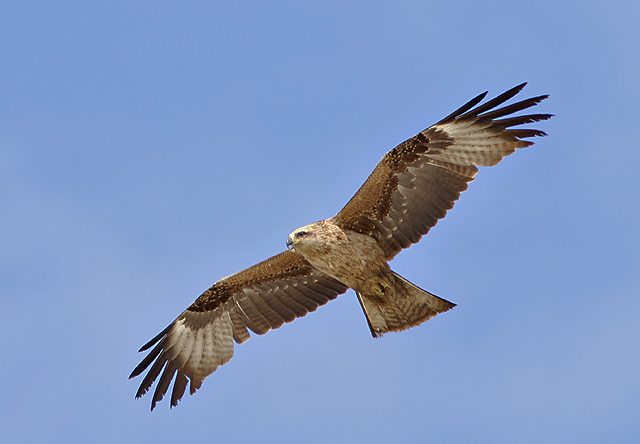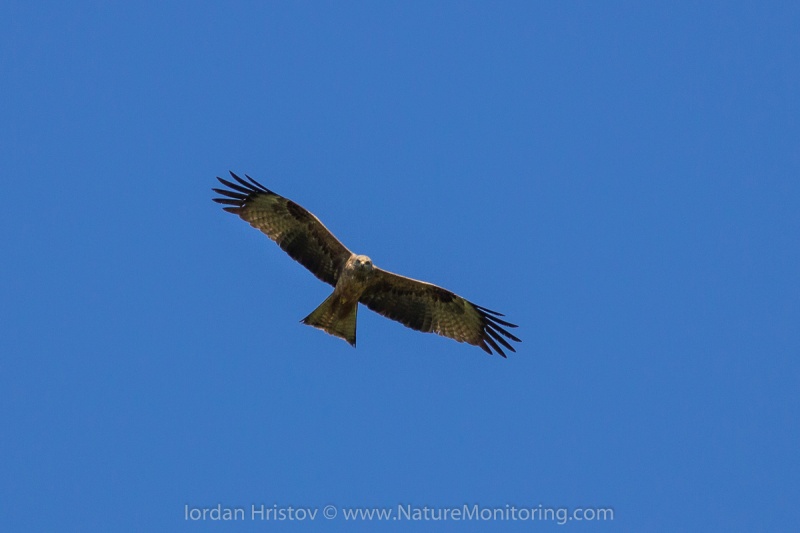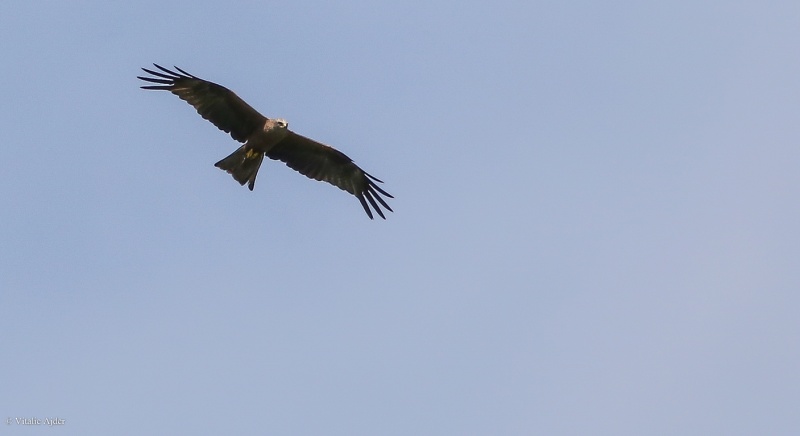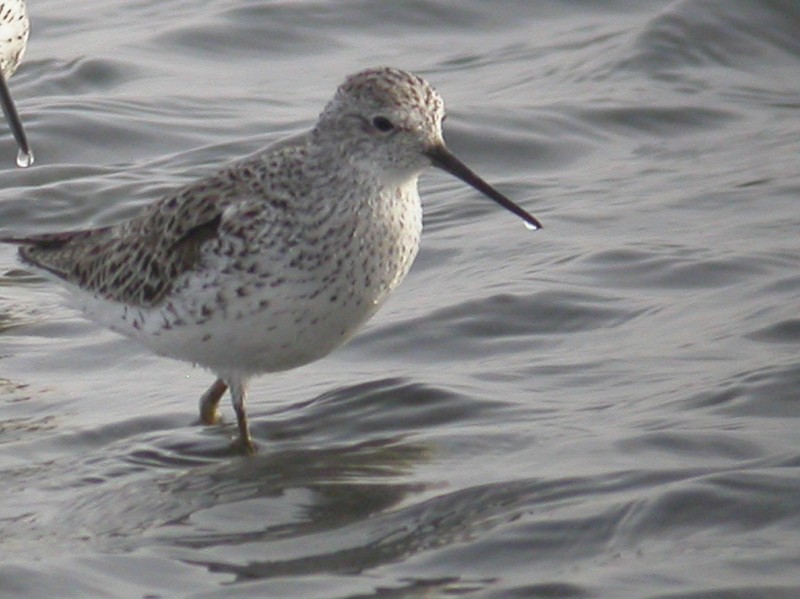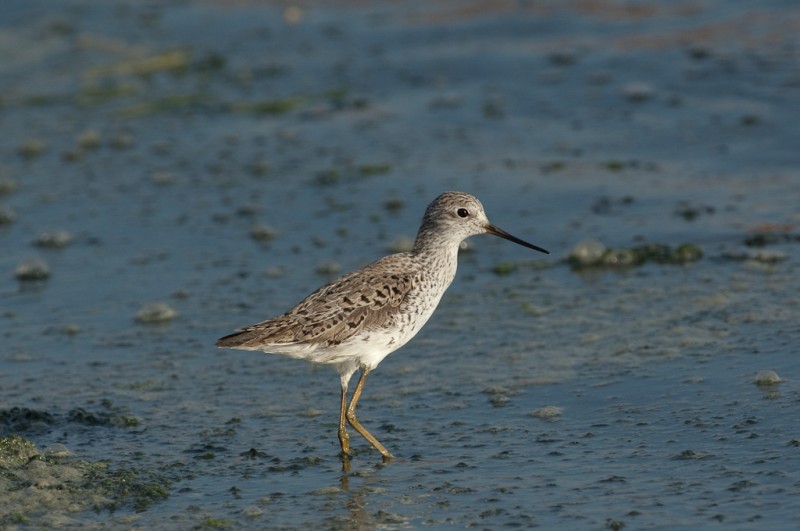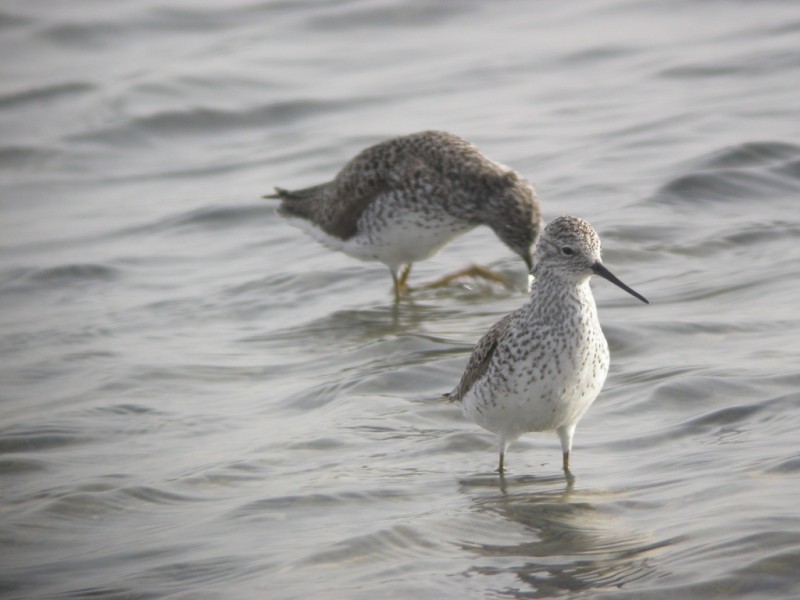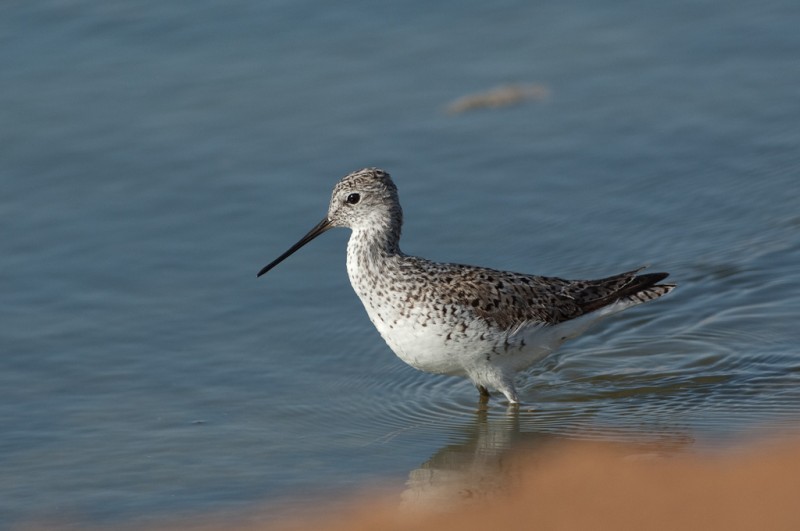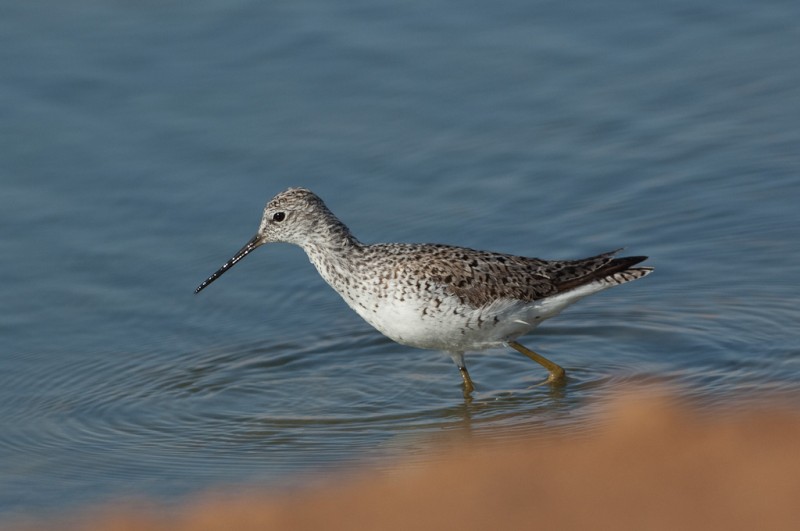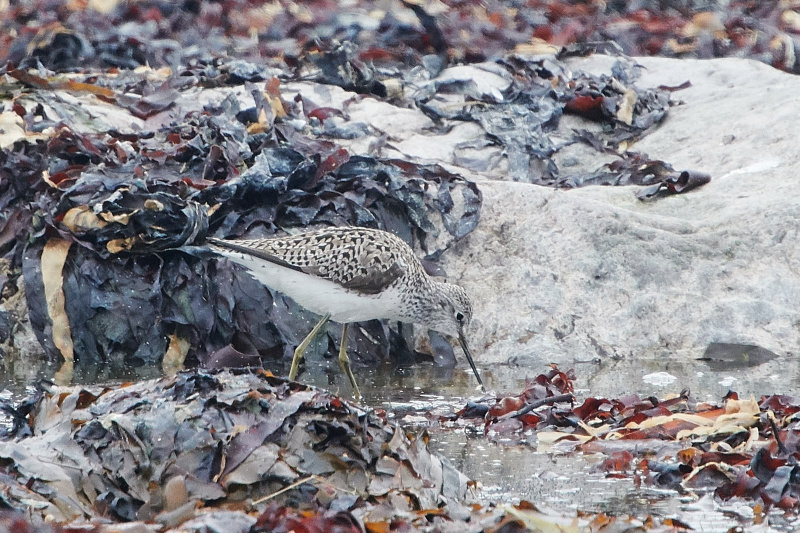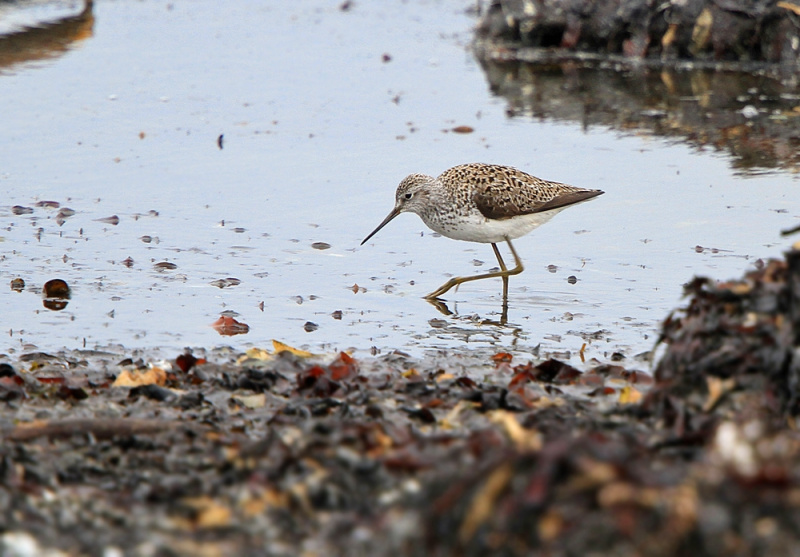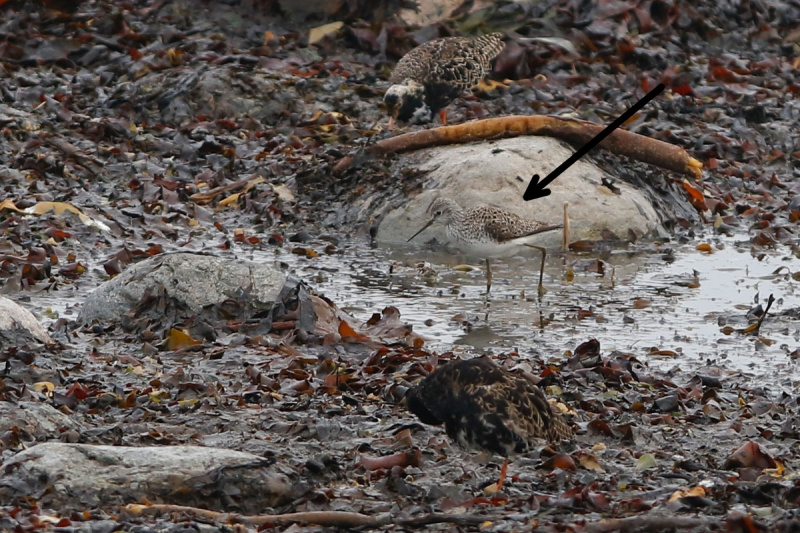Black Kite (Milvus migrans)
Marsh Sandpiper (Tringa stagnatilis)
Medium sized, brown raptor with shallowly forked tail. Juveniles with mottled appearance, due to buffed tips of wing coverts. Easily mistaken for Red Kite, but tail is not that deeply forked, upper side of tail is dark brown and head not so pale (plumage colours overall more uniform). Base of primaries paler than the rest of the underwing (especially in Middle-East birds), but with much less contrast to the black wing tips than in Red Kite. Differs from dark morphed Booted Eagle by the forked tail. Wings held horizontally (separates it from harriers). Typically twists it's tail frequently to maintain position in the air (like Red Kite).
Sound:A piercing, first ascending then descending long "piuuu". Starting as a clear tone then gradually taking on a vibrating character that differs from Red Kite. Also a sharp "kieee -ki- ki-ki". More vocal than Red Kite.
Call:
Distribution:
Wikipedia: map (se also Xeno-canto below)
Ecology:Birdlife ecology
Links:
Observation.org Latest observations
Image search Flickr NB! May give other species
CCSmall, but tall and elegant Tringa. Body the size of Wood Sandpiper, but stands as tall as Greenshank. Tibia especially long. The needle-like, straight bill adds to the elegance. Pale face, especially at base of bill. Back grey in adults, with star-shaped speckles in summer and narrow, pale fringes in winter. Immatures with broader fringes and overall darker upperparts. In flight the long legs trails far behind the tail, and the narrow white wedge on the back is conspicuous. Wings are dark with no bars, and shows as the darkest part of the bird also when on ground (especially in adults). Surprisingly quick and easy take-off. Posture generally erect and tall, particularly when nervous.
Sound:Song a slow, melancholic whistle "tu-lee-uu", with the middle part highest in pitch (and with falling glissando). Similar to Spotted Redshank in structure, but with a clear tone (little risk of confusion). Flight call/contact call similar to singular instances of alarm call of Redshank, consisting of a single note rising abruptly in pitch in a split second and then falling; "kieew". Lingers a bit at the ending of the note, giving it a clearer glissando than in Redshank.
Contact call:
Distribution:
Xeno-canto: map
Ecology:Birdlife ecology
Links:
Observation.org Latest observations
Image search Flickr NB! May give other species
CC
 English
English Albanian
Albanian
 Armenian
Armenian
 Bulgarian
Bulgarian
 Catalan
Catalan
 Croatian
Croatian
 Czech
Czech
 Danish
Danish
 Dutch
Dutch
 Finnish
Finnish
 French
French
 Georgian
Georgian
 German
German
 Greek
Greek
 Hungarian
Hungarian
 Italian
Italian
 Latvian
Latvian
 Lithuanian
Lithuanian
 Macedonian
Macedonian
 Norwegian
Norwegian
 Polish
Polish
 Portuguese
Portuguese
 Romanian
Romanian
 Russian
Russian
 Sami : Lule sami
Sami : Lule sami
 Sami : North sami
Sami : North sami
 Sami : South sami
Sami : South sami
 Scientific names
Scientific names
 Serbian
Serbian
 Spanish
Spanish
 Swedish
Swedish
 Ukrainian
Ukrainian


